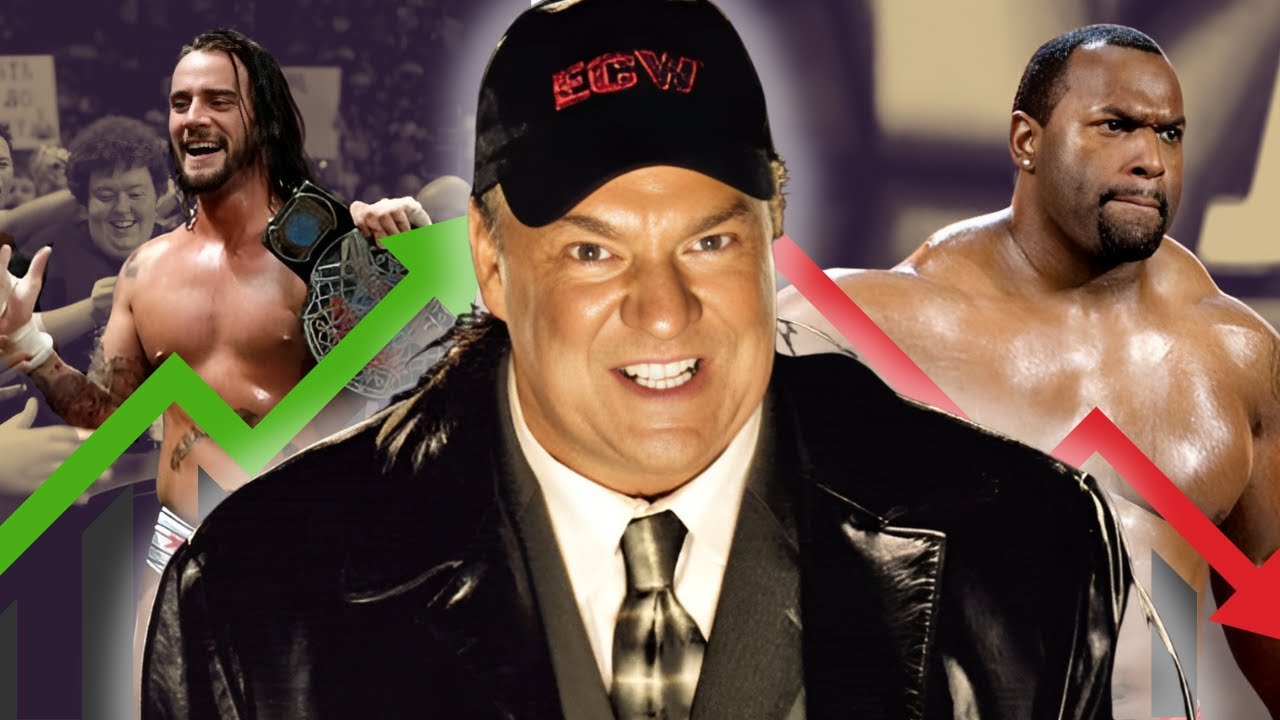The Rise and Fall of ECW

In the 1990s, while mainstream wrestling was being shaped by big corporations, theatrical characters, and increasingly polished productions, a small promotion emerged on the fringes of the system with a radically different approach. Extreme Championship Wrestling was more than an alternative — it was a revolution.
Amid shattered tables, flying chairs, and promos that seemed to come straight from the soul, ECW offered something its competitors had lost along the way: authenticity. Its raw and visceral style didn’t just attract a loyal fan base — it challenged the norms of the industry and directly influenced the direction of professional wrestling.
But like many intense revolutions, ECW’s path was also marked by internal conflicts, financial limitations, and hard decisions, leading to a premature end. Even so, its impact still echoes today — and revisiting its story is a reminder of how something small can shake the foundations of an entire industry.
From Regional to Revolutionary
ECW began in the early 1990s as a small regional promotion known as Eastern Championship Wrestling. Nothing too flashy — just another name among many local American wrestling leagues. That changed completely when Paul Heyman, young and bursting with creativity, took the reins. He didn’t want to follow the rules — he wanted to break them.
Under Heyman’s leadership, ECW dropped the “Eastern” and embraced “Extreme” — and it wasn’t just the name that changed. From that point on, the ring became a battleground for brutal fights, human characters, and a level of creative freedom that simply didn’t exist anywhere else.
Chairs flew, tables shattered like cardboard, and blood became part of the show. But behind all the chaos was something even more valuable: authenticity. ECW was gritty, loud, and imperfect — just like real life.
The Breaking Point
The moment that truly defined ECW’s destiny came in 1994. During a National Wrestling Alliance tournament, Shane Douglas won the championship, took the belt… and threw it to the ground. Instead of accepting the NWA title, he declared that the championship now belonged to ECW.
That wasn’t just a bold move — it was a clean break from the past. A final “enough!” to the system that had been holding wrestling back. ECW became independent, fully embraced its extreme identity, and kicked off a new era.
Limitless Creativity and World-Class Talent
With its new identity, ECW evolved into an explosive fusion of styles. Wrestlers like Eddie Guerrero, Chris Benoit, and Dean Malenko raised the technical bar. Meanwhile, names like Rey Mysterio and Sabu brought acrobatics and international influences that American audiences had rarely seen before.
The result? Unpredictable, high-energy matches and a show that was pure adrenaline from start to finish.
And we can’t forget the icons born within ECW: Tommy Dreamer, The Sandman, Rob Van Dam. These weren’t just wrestlers. They became symbols of resistance, passion, and total dedication. They weren’t part of ECW — they were ECW.
The Fall
But like everything that burns too brightly, ECW also had a darker side. Lack of support from major TV networks, tight budgets, and the departure of key stars to wealthier promotions began to eat away at the company’s foundations.
The deal with TNN, for example, seemed like a blessing — but turned into a nightmare. Little promotion, limited funding, and practically no support. Meanwhile, no matter how loyal the fanbase was, it wasn’t enough to keep the entire operation alive on its own.
Debts piled up. The roster thinned out. And in January 2001, ECW held its last major event: Guilty as Charged. Just a few days later, the end became official.
But the Story Didn’t End There
Even after shutting down, ECW refused to be forgotten. In 2004, WWE released the documentary The Rise and Fall of ECW, highlighting the promotion’s impact across the entire industry. In 2006, there was even a revival attempt. It didn’t reach the same heights, but it proved that the hardcore spirit still lived on in fans’ hearts.
ECW became a symbol of authenticity. Of defiance. Of what wrestling can truly be when it’s driven by heart and soul. Its legacy continues to influence new generations, inspire young talent, and remind everyone that sometimes, you have to break everything to build something real.